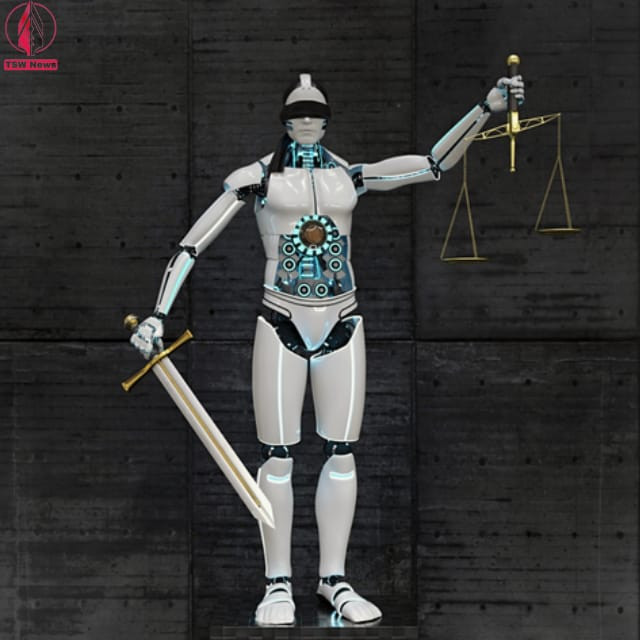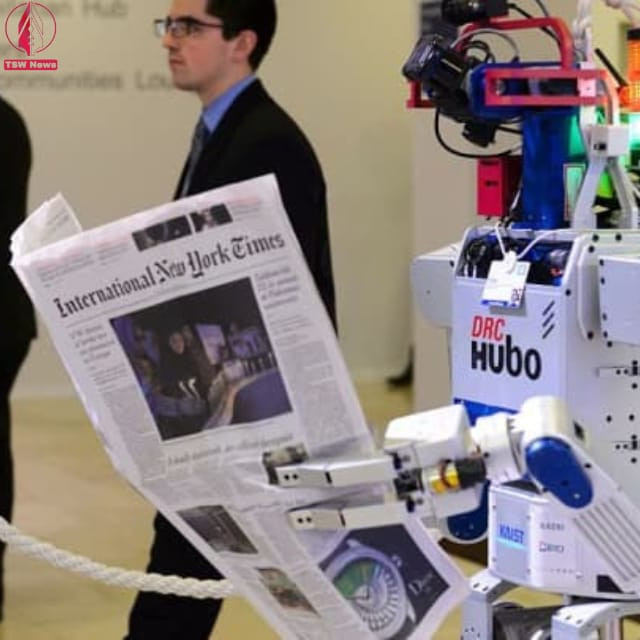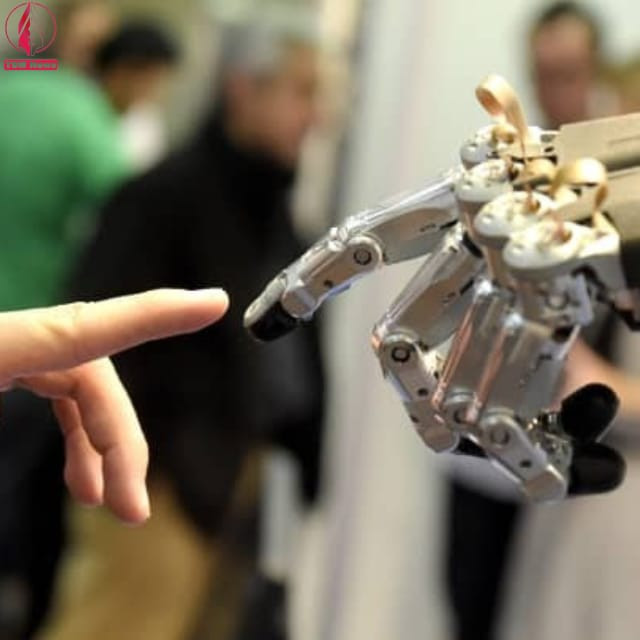LAWBOTS: Are we Manufacturing Machines of Mass Unemployment
- Posted on May 14, 2023
- News
- By Neeraj Anand
- 406 Views

LAWBOTS:-
We are surrounded by machines, software, and robots that have impacted our lives so greatly that it is impossible to imagine the existence of humankind in their absence. Artificial Intelligence (A.I.) has revolutionized every walk of human life by facilitating the integration of information, analyzing data, and using insights to improve decision-making. It has become one of the cardinal components of the modern world and is capable of solving diverse problems with ease and efficiency.
From performing simple tasks like writing and painting to conducting complex operations like manufacturing and research, artificial intelligence has provided efficient results in handling multifarious activities. It has also reduced human efforts by enormous margins and has accomplished unparallel feats in various professional domains, including the legal field.
The hefty tasks of legal research, which took up hours of concentrated human efforts, can be accomplished through lawbots and other legal applications with minimal effort. With advancing times and innovations, these lawbots are feared to replace lawyers and other professionals in the legal profession.

Robotic services have set unmatched records which cannot be rivaled through brute human force. Surpassing human expectations, robots have undertaken marvel mega projects and deftly accomplished their programmed targets.
This unparalleled perfectionism provided by artificial intelligence has been a troublesome factor in the workforce of modern companies. The fear of unemployment during the industrial revolution, when hydraulic systems and other mechanical marvels replaced the rough human labor, has come back to haunt the employees as artificial intelligence takes on mental prowess, which until recently, seemed to be limited to humans.
WHAT ARE LAWBOTS?
Lawbots are legal artificial intelligence interfaces programmed to automate certain legal operations to limit humans’ direct involvement in specific legal matters.
Work done by lawyers for centuries is being computerized as these robot lawyers are becoming mechanized to perform tasks like document drafting, legal research, and many other tasks that are typically performed by paralegals and young associates in law firms.
Certain lawyer bots have also been imbibed with the ability wherein they converse with people about their legal dilemmas and use algorithms to predict the outcome of the case.
Lawbots have been deployed to make the legal domains more efficient and deliverable. Their interfaces may vary from basic smart searches and step-by-step documentation to highly interactive bots conducting legal counseling with clients.
LAWYERS vs. LAWBOTS: A COMPARATIVE ANALYSIS
Artificial intelligence has been distinctively woven into the methodologies of white-collar professions, previously thought to be secured from its influence. Lawbots have been expected to take over the operations in the legal field and replace the attorneys in the near times.
According to a report published by Gartner, one-fourth of the internal legal work will be handled by lawbots by the end of 2023. Their prime services include spontaneous research relating to the presiding matter where their intense acumen is utilized in conducting the bulky data probes.
Some lawbots have also been programmed to conduct document reviews at a superhuman pace, saving the loss of trillions of dollars.
Artificial intelligence can generate content as well as analyze it. Coupled with legal research and reviewing, artificial intelligence has been powered up with thousands of related statistics which aid it to draft legal documents such as contracts, affidavits, and other basic paperwork. The rapid and precise decision-making of the lawbots can be useful in greasing the wheels of justice.
But one quintessential aspect of the legal field includes experience and expertise, which cannot be fed into artificial intelligence. AI-powered lawbots can aid in documentation, writing articles, and analyzing reports but since artificial intelligence lacks human experience, it sometimes brings up random topics or strange inaccuracies in its operation, which could result in irreversible losses to the parties.
Lawbots have also been programmed to predict the outcomes of the cases, which may help the counsel accordingly to strengthen their case.
Although a boon, this foreseeing power lacks an emotive outlook. Legal dispute involves the emotional perspective of lawyers which varies from case to case and is an important factor in the decision-making process.
Therefore, the art of molding the facts and questioning the witnesses lies best within the lawyers’ armament for better proficiency and is far too soon to be entrusted to artificial intelligence.

THE RISK FACTORS OF ARTIFICIAL INTELLIGENCE
Apart from smoothing the legal process, artificial intelligence also imbibes some risk factors. Considering the danger of extensive automation of the legal profession, the lawbots can be a cause of mass unemployment.
With faster and better results, artificial intelligence-powered lawbots could take the seats of lawyers by being the messiah of resolving the excessive number of cases in the countries.
Furthermore, the data of actual arrest and conviction statistics are used to train the machine learning algorithms, which may be biased toward specific populations. It could perpetuate historical injustices or, worse, give them the appearance of impartiality through computer-generated fabrication.
CONCLUSION: LAWBOTS, A REPLACEMENT?
The legal profession is particularly appealing as a sector that could profit from the adoption of lawbots due to the exponential expansion of technology.
Legal departments are under tremendous pressure to become more responsive and effective, which is prompting them to consider automation, artificial intelligence (AI), and machine learning. Standing tall upon these claims, lawbots and other AI tools have enhanced the research and documenting areas of the profession by extensive margins.
Taking into account all the positive factors, we still cannot rely on these mechanical masterminds to ward off the lawyers from their jobs. These lawbots are mere machines that are programmed to function in the way they do and are supplied with past and current legal records and court proceedings.
Similarly, these AI-powered devices could be mechanized with biased data and statistics to neutralize rightful conduct or to demean a particular section of society.
All the more, these robots lack emotions which is a prototypical instrument to denote the weight of the matter at hand.
Artificial intelligence is a useful tool in the pursuit of justice since it can speed up the legal process and make it more error-free and efficient. One needs to accept that artificial intelligence (AI) is a mirror to lawyers that reflects some of their fundamental shortcomings.
They may be able to better comprehend the reality and constraints of human justifications or explanations for judgments as a result of the process of unraveling the factors an AI considers when making a decision. Lawbots might make civil case resolution more effective while also boosting predictability without posing a moral hazard.
But, when AI is utilized in place of human judgment, particularly in the context of criminal law, it becomes increasingly problematic and is, therefore, not ready to be considered as a replacement for lawyers. Not yet!




